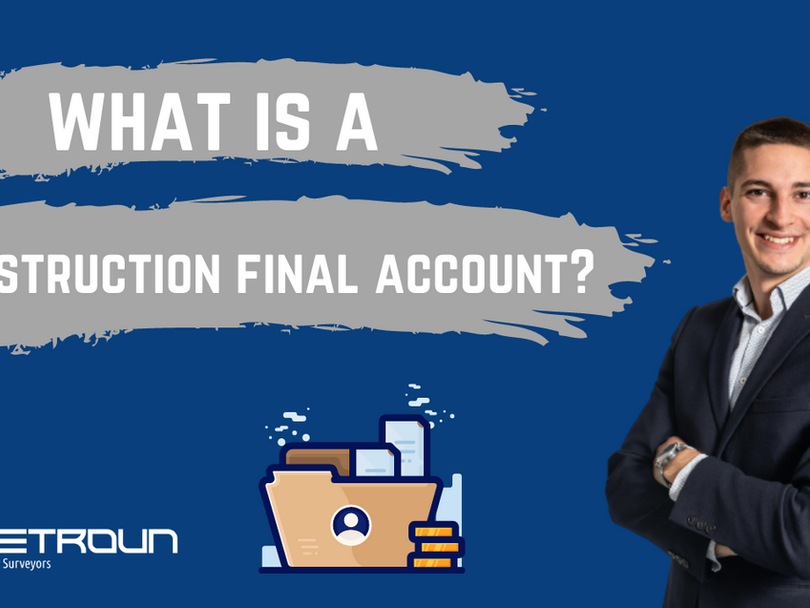Quantity Surveyors have the quite unique position of being required for all stages of a construction project, be it pre, during or post the actual construction of a building or road and everything in between. One of the quantity surveyors key and crucial responsibilities comes after a construction project has been completed in the form of a final account. This may be a term you have heard before but what exactly is a final account? Well, if this is what you want to find out, you are in the right place!

Final accounts are an important commercial milestone in any construction project. They signify the agreement of the final amount to be paid between the client and the contractor or the contractor and subcontractor. In construction contracts there are clauses and processes on how to vary the works, including the timescales to adhere too. This means that any variations should ideally be proposed and agreed before you ultimately get to the final account stage however, in reality, there are usually contentious points to work through as part of the final account process. For example, variations that have been rejected in principle or where they have been agreed in principle but there is disagreement to their value.
In general, a final account process will include the following:
- A formal request for, or submission of the final account, including reference to the relevant contract clauses where applicable.
- Site records, logs of any variations including agreed quotations, invoices, proof of payments to subcontractors and any other necessary backup to evidence the value of the works undertaken should be included in the Final Account submission.
- Any entitlement and value of loss and expense and extension of time claims should be established. In order to do so, this will need to include copies of all relevant instructions, quotation submissions and acceptances clearly demonstrating how, in accordance with the contract, they are due additional money.
- If you are working for the party receiving the Final Account, you will need to assess the sum claimed versus the sum payable and then list the reasons why, in accordance with the contract if there are any differences.
- Once an assessment has been made, it is good practice to organise and attend a final account meeting to iron out any final issues and agree assessments, ensuring the appropriate personnel are available from all parties.
- There may be issues to negotiate, but these should be minimised through joint and robust account assessment.
- Preparation of the final account statement, which will include words to the effect of ‘full and final’ agreement. This will need to be signed by suitably authorised representativesof both parties.
Note that if the contract payment mechanism involves a direct costs plus fee arrangement, undertaking detailed audits of costs claimed will involve the following:
- Direct access to the suppliers financial systems
- Audit of the suppliers internal governance to establish that costs booked to a particularcontract are correct and can be traced back to the source.
- Establishment and clear representation of the allowable and disallowable costs in accordance with the contract.
- Any costs that are deemed to be included in other fees will need to be set aside e.g. finance charges.
- Check that sub-contract costs have been paid in accordance with their subcontracts or else these could fall into the category of disallowed costs.
In the event that there are differences in the proposed final account values for whatever reason that cannot be agreed upon, the parties can seek a resolution through a number of different resolution methods such as adjudication. For more information on dispute resolution methods, check out our video explaining the different options here: https://www.youtube.com/watch?v=aTc8m9Bh_FM







One Response
Which level of certificate do i gain when i complete the online learning course of becoming a QS.
Diploma?
Or certificate? Can i go higher than those?